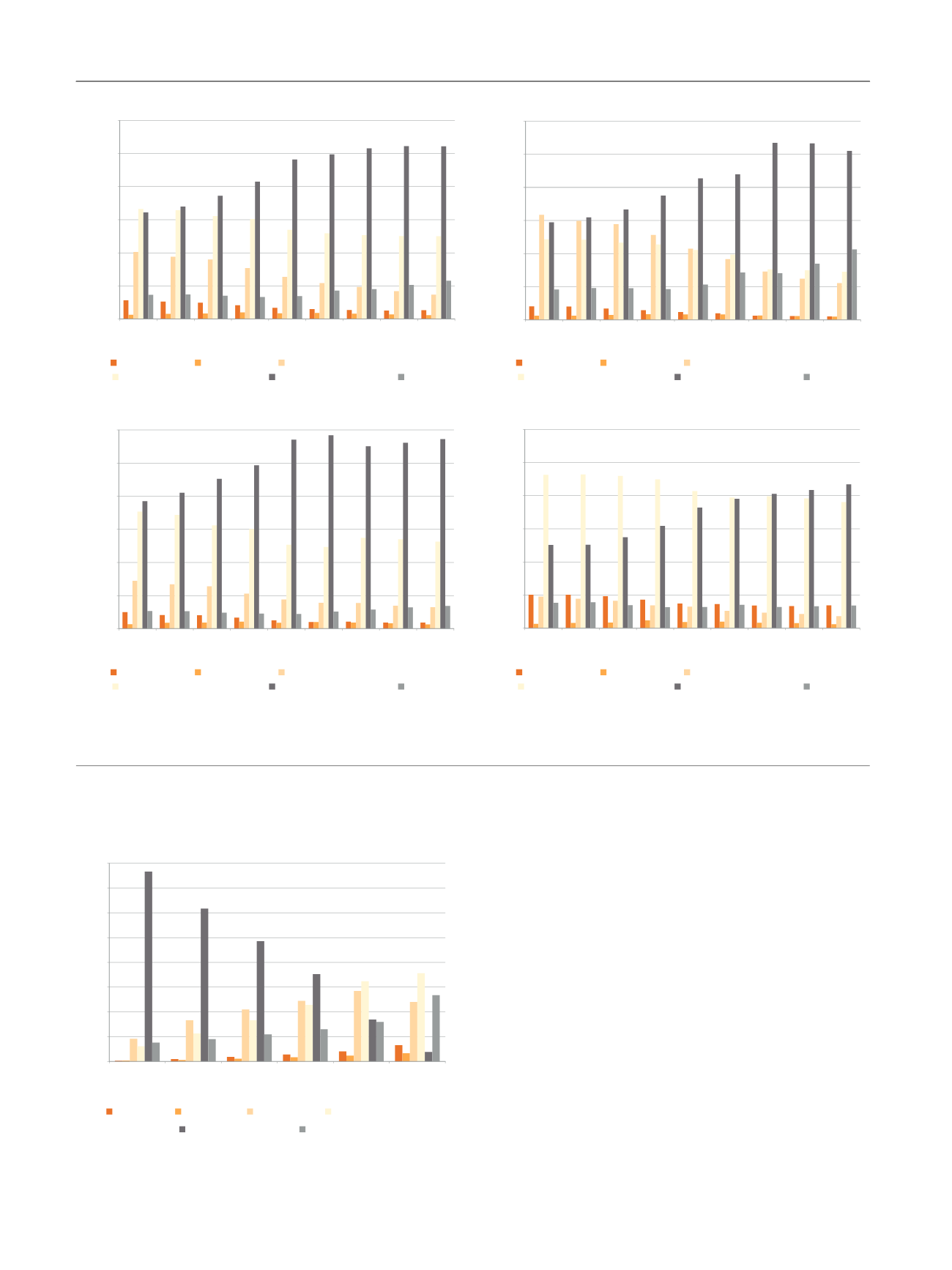

3.3.
Use of ADT
Utilization of ADT along with RP, EBRT, brachytherapy, or
cryotherapy is displayed in
Figure 3. For patients with low-
risk disease, use of ADT fell for all forms of therapy
(
p
trend
<
0.001). A similar trend was seen in patients with
intermediate-risk disease. For patients with high-risk
disease, use of ADT remained stable over the study period.
Approximately 70% of patients with high-risk disease who
were treated with EBRT also received ADT. Use of ADT with
RP was uncommon and fell steadily across risk groups as did
use of ADT alone.
3.4.
Factors associated with management choice
A multivariate logistic regression model was constructed to
identify factors predictive of receiving RP versus radiation
therapy
( Table 2). Advancing age was the strongest
predictor for receipt of radiation over RP (adjusted odds
[(Fig._1)TD$FIG]
0
10
20
30
40
50
60
2008
2007
2006
2005
2004
2012
2011
2010
2009
PaƟents receiving treatment (%)
Year of treatment
High-risk prostate cancer
0
10
20
30
40
50
60
2008
2007
2006
2005
2004
2012
2011
2010
2009
PaƟents receiving treatment (%)
Year of treatment
Intermediate-risk prostate cancer
0
10
20
30
40
50
60
2008
2007
2006
2005
2004
2012
2011
2010
2009
PaƟents receiving treatment (%)
Year of treatment
Low-risk prostate cancer
Primary ADT
Cryotherapy
Brachytherapy
External beam radiotherapy
Radical prostatectomy
ObservaƟon
Primary ADT
Cryotherapy
Brachytherapy
External beam radiotherapy
Radical prostatectomy
ObservaƟon
Primary ADT
Cryotherapy
Brachytherapy
External beam radiotherapy
Radical prostatectomy
ObservaƟon
Primary ADT
Cryotherapy
Brachytherapy
External beam radiotherapy
Radical prostatectomy
ObservaƟon
0
10
20
30
40
50
60
2008
2007
2006
2005
2004
2012
2011
2010
2009
PaƟents receiving treatment (%)
Year of treatment
Localized prostate cancer
(A)
(B)
(D)
(C)
Fig. 1 – Treatment patterns between 2004 and 2012 for (A) all patients with localized prostate cancer and those with (B) low-risk, (C) intermediate-risk,
and D) high-risk prostate cancer.
ADT = androgen deprivation therapy.
[(Fig._2)TD$FIG]
0
10
20
30
40
50
60
70
80
75–90
70–74
65–69
60–64
50–59
<50
PaƟents receiving treatment (%)
Age group (yr)
Low-risk prostate cancer
Primary ADT Cryotherapy Brachytherapy External beam radiotherapy
Radical prostatectomy ObservaƟon
Fig. 2 – Treatment patterns for low-risk prostate cancer patients
stratified by age group.
ADT = androgen deprivation therapy.
E U R O P E A N U R O L O G Y 7 1 ( 2 0 1 7 ) 7 2 9 – 7 3 7
732
















